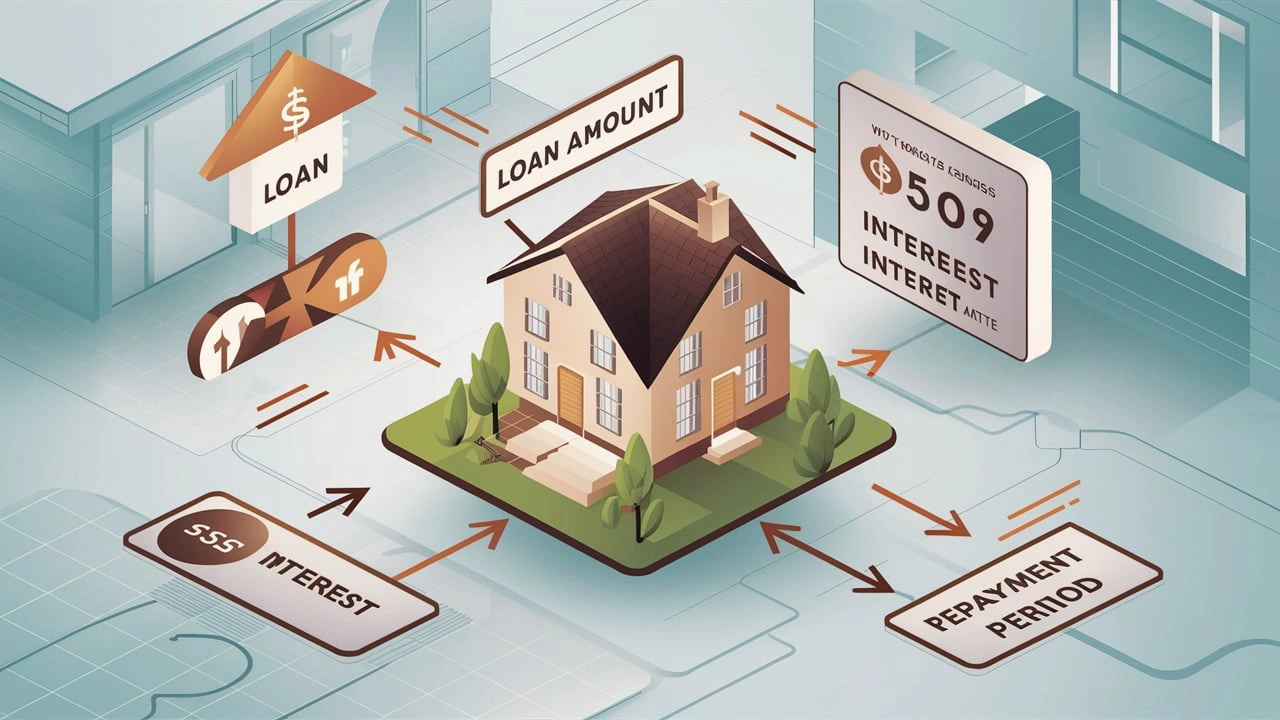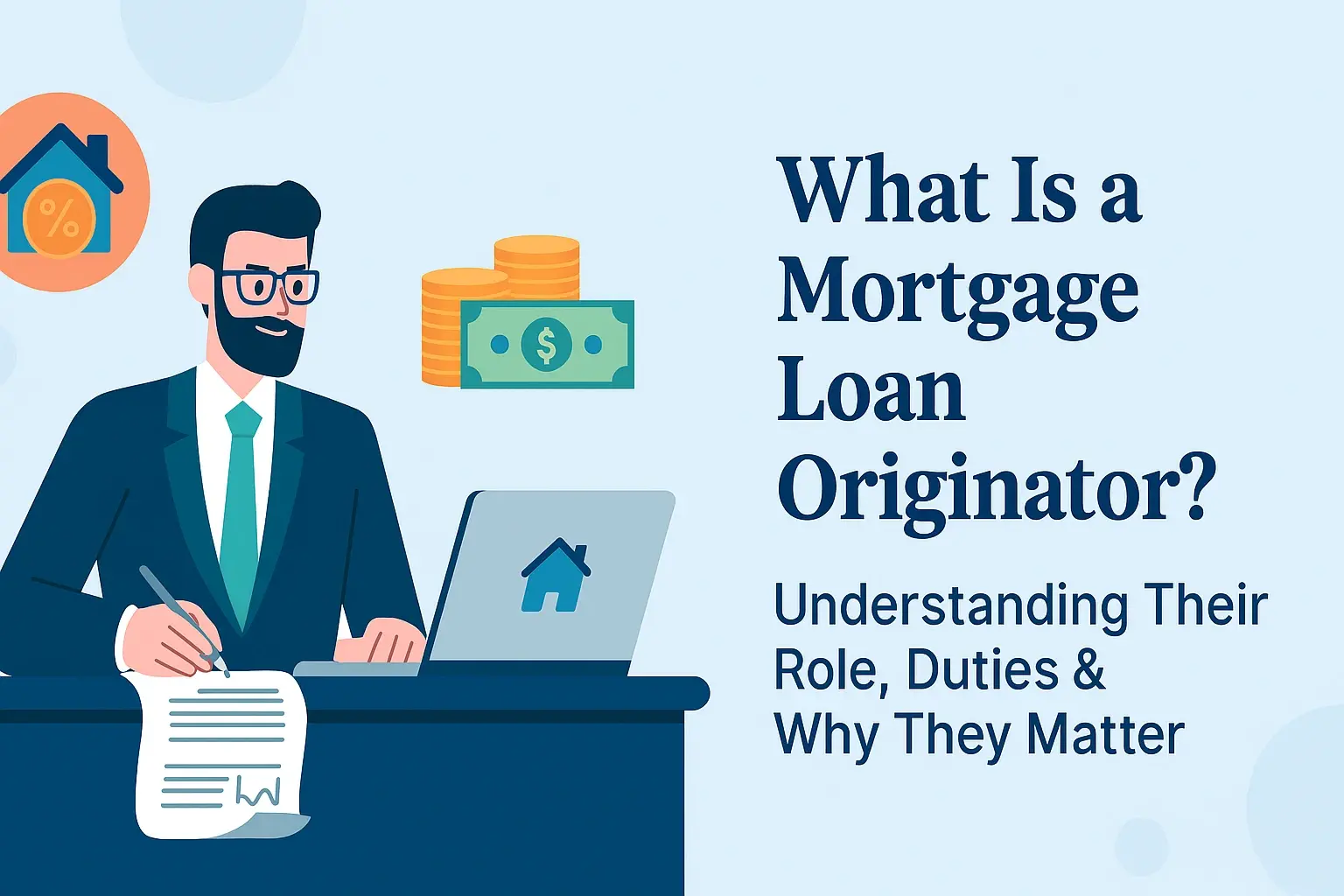-
Posted on: 23 Aug 2024

-
Your home is likely your most valuable asset. Beyond just being a place to live, it can also be a source of financial leverage. One popular way to tap into this potential is through a home equity loan. But what exactly is a home equity loan, and how does it work? This comprehensive guide will walk you through everything you need to know, from eligibility requirements to potential risks.
Understanding Home Equity
Before diving into the mechanics of a home equity loan, it's crucial to understand what home equity actually is. Simply put, your home equity is the difference between the current market value of your home and the outstanding balance of your mortgage. For example, if your home is worth $400,000 and you owe $200,000 on your mortgage, your home equity is $200,000.
This equity represents the portion of your home that you truly own, and it's this equity that you can borrow against with a home equity loan.
What is a Home Equity Loan?
A home equity loan, also known as a second mortgage, is a type of loan where you borrow a lump sum of money secured by the equity in your home. Unlike a Home Equity Line of Credit (HELOC), which is a revolving line of credit, a home equity loan provides you with a fixed amount of money upfront, and you repay it in fixed monthly installments over a set period of time.
Key Features of a Home Equity Loan:
- Lump Sum: You receive the entire loan amount at once.
- Fixed Interest Rate: Most home equity loans have a fixed interest rate, providing predictable monthly payments.
- Fixed Repayment Term: You'll have a set period (e.g., 5, 10, 15, or 30 years) to repay the loan.
- Secured by Your Home: The loan is secured by your home, meaning the lender can foreclose on your property if you fail to make payments.
How a Home Equity Loan Works: A Step-by-Step Guide
- Application: The first step is to apply for a home equity loan with a lender. This typically involves providing information about your income, credit history, employment, and the value of your home.
- Appraisal: The lender will likely order an appraisal of your home to determine its current market value. This is essential for calculating your available equity.
- Underwriting: The lender will review your application, credit history, and appraisal to assess your ability to repay the loan. They'll also verify your income and employment.
- Approval: If your application is approved, the lender will provide you with a loan offer that includes the loan amount, interest rate, repayment term, and any fees.
- Closing: If you accept the loan offer, you'll proceed to the closing stage. This involves signing the loan documents and paying any closing costs.
- Disbursement: Once the closing is complete, the lender will disburse the loan amount to you.
- Repayment: You'll then begin making fixed monthly payments to repay the loan over the agreed-upon term.
Eligibility Requirements for a Home Equity Loan
To qualify for a home equity loan, you'll typically need to meet certain eligibility requirements, including:
- Sufficient Home Equity: Lenders typically require you to have a certain amount of equity in your home, often at least 15-20%. This means your loan-to-value (LTV) ratio (the amount you owe on your mortgage divided by the home's value) should be below a certain threshold.
- Good Credit Score: A good credit score is essential for securing a home equity loan at a favorable interest rate. Lenders generally prefer borrowers with credit scores above 680.
- Stable Income: You'll need to demonstrate a stable and sufficient income to repay the loan. Lenders will review your income history and may require proof of employment.
- Low Debt-to-Income Ratio (DTI): Your DTI, which is the percentage of your gross monthly income that goes towards debt payments, should be within an acceptable range. Lenders typically prefer DTIs below 43%.
Interest Rates and Fees
The interest rate on a home equity loan can significantly impact your monthly payments and the total cost of the loan. Interest rates are influenced by various factors, including:
- Credit Score: Borrowers with higher credit scores typically qualify for lower interest rates.
- Loan-to-Value Ratio (LTV): A lower LTV ratio (more equity) may result in a lower interest rate.
- Market Conditions: Interest rates are also affected by broader economic factors and market conditions.
In addition to interest rates, you'll also need to consider various fees associated with home equity loans, such as:
- Application Fee: A fee charged for processing your loan application.
- Appraisal Fee: A fee for appraising your home's value.
- Closing Costs: These can include title insurance, recording fees, and other administrative charges.
- Origination Fee: A fee charged by the lender for originating the loan, often a percentage of the loan amount.
Using a Home Equity Loan: Common Purposes
Home equity loans can be used for a variety of purposes, including:
Home Improvements:
This is one of the most common uses for home equity loans. You can use the funds to renovate your kitchen, remodel a bathroom, add an extension, or make other home improvements that increase your home's value.
Debt Consolidation:
Home equity loans can be used to consolidate high-interest debt, such as credit card debt or personal loans, into a single, lower-interest loan. This can potentially save you money on interest payments and simplify your finances.
Education Expenses:
You can use a home equity loan to pay for education expenses, such as tuition, fees, and living expenses for yourself or a family member.
Medical Expenses:
Unexpected medical expenses can be a significant financial burden. A home equity loan can provide you with the funds needed to cover these costs.
Other Major Expenses:
Home equity loans can also be used for other major expenses, such as a wedding, a vacation, or a large purchase.
Home Equity Loan vs. HELOC (Home Equity Line of Credit)
It's important to understand the difference between a home equity loan and a HELOC. While both are secured by your home equity, they have different features:
Feature Home Equity Loan HELOC (Home Equity Line of Credit) Loan Amount Lump sum Revolving line of credit Interest Rate Typically fixed Typically variable Repayment Fixed monthly payments Variable payments, often interest-only during the draw period Access to Funds One-time disbursement Can draw funds as needed during the draw period A home equity loan is a good option if you need a fixed amount of money for a specific purpose and prefer predictable monthly payments. A HELOC is more flexible if you need access to funds over time and don't need the entire amount upfront.
The Risks of a Home Equity Loan
While home equity loans can be a useful financial tool, it's important to be aware of the risks involved:
- Risk of Foreclosure: Because the loan is secured by your home, you risk losing your home if you fail to make payments.
- Increased Debt: Taking on a home equity loan increases your overall debt burden.
- Higher Interest Rates: Home equity loan interest rates can be higher than other types of loans, such as personal loans.
- Closing Costs: Closing costs can add to the overall cost of the loan.
- Impact on Credit Score: Defaulting on the loan can negatively impact your credit score.
Alternatives to a Home Equity Loan
Before taking out a home equity loan, consider other potential options:
- Personal Loan: An unsecured loan that doesn't require collateral. Interest rates may be higher, but you don't risk losing your home.
- Credit Cards: Useful for small expenses, but can have very high interest rates.
- Savings: If you have sufficient savings, using your own funds may be the most cost-effective option.
- Cash-Out Refinance: Refinancing your mortgage for a larger amount and taking the difference in cash.
Making an Informed Decision
Taking out a home equity loan is a significant financial decision. It's essential to carefully consider your needs, financial situation, and the potential risks before proceeding. Compare offers from multiple lenders, read the fine print, and seek professional financial advice if needed. Make sure you fully understand the terms and conditions of the loan before signing any documents.









